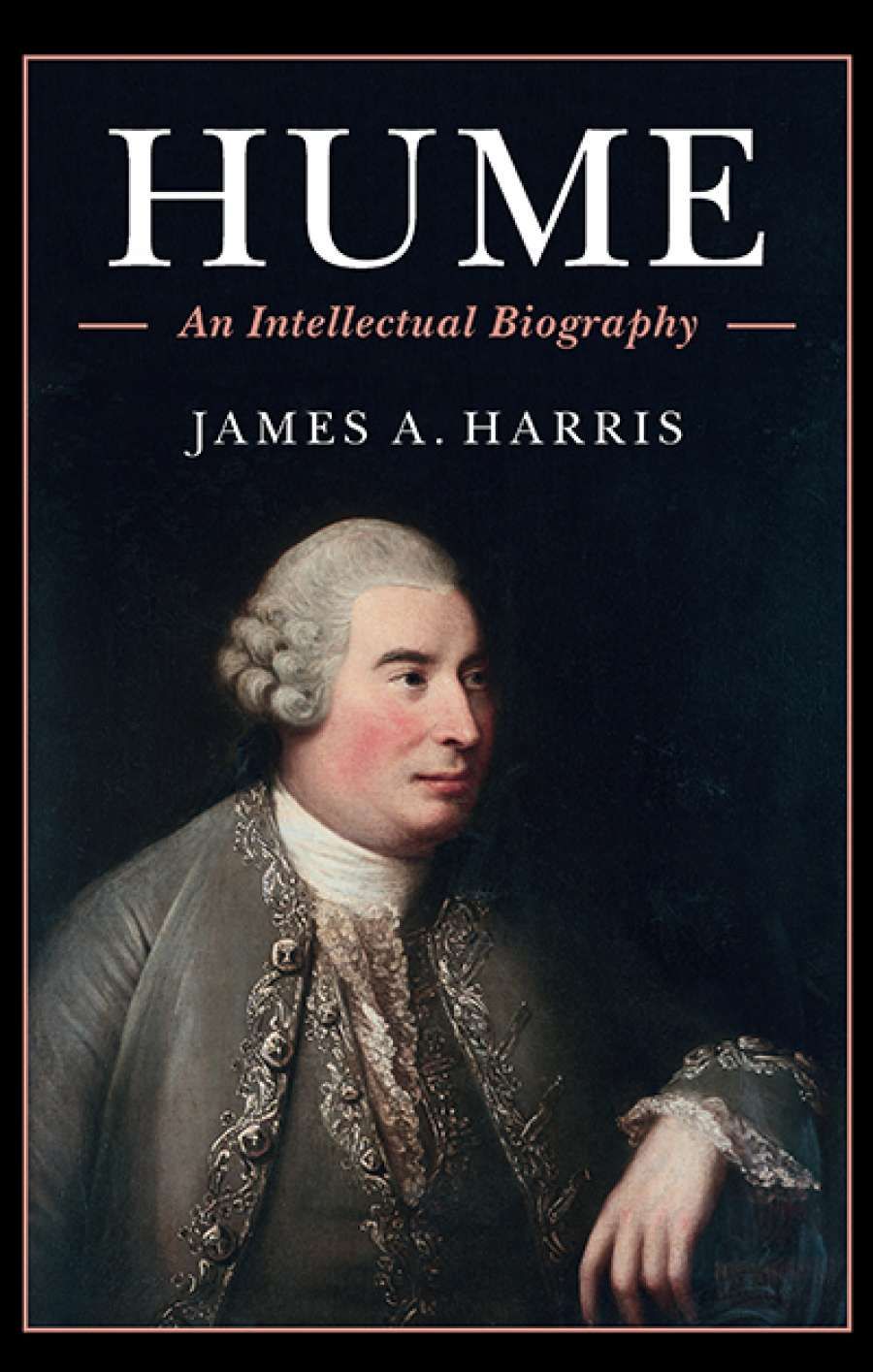
- Free Article: No
- Contents Category: Philosophy
- Custom Article Title: Janna Thompson reviews 'Hume: An intellectual biography' by James A. Harris
- Custom Highlight Text:
David Hume earned his place in the philosophical pantheon mostly because of the uncompromising empiricism of his early work A Treatise of Human Nature (1738). He looked ...
- Book 1 Title: Hume
- Book 1 Subtitle: An intellectual biography
- Book 1 Biblio: Cambridge University Press $79.95 pb, 633 pp, 9780521837255
One of Harris's tasks as a biographer is to explain how an isolated young man of twenty-three managed to conceive of a project like the Treatise. Hume provides little help. He did not keep a journal and few of his letters survive. Harris has to speculate on what Hume might have read. He makes much of a letter written to an unnamed physician that describes a mental crisis Hume suffered because of his failed effort to put stoic philosophy into practice. Harris thinks that this crisis, along with reading Mandeville and others who stressed the egoistic basis of human action, gave Hume the ambition of creating a science of human nature as it actually is.
Hume later described the Treatise as 'falling dead-born from the press'. He discontinued his original scientific project and turned to writing essays on popular topics. Eventually, he presented some of his philosophical ideas in a more accessible form, but he never acknowledged his early work. It was published anonymously and not included in the volumes of his writings that he later compiled for publication.
Another task for a biographer is to explain this change of direction. Harris does not agree with those who think that Hume was driven by a desire for fame or that his philosophical thought had reached a dead-end. He argues that Hume was from first to last a man of letters whose interests were not confined to what we now call philosophy and whose main ambition was to communicate ideas about important subjects to men and women of culture. In this he was successful. When he died in 1776, Hume was one of the most well-known and respected intellectuals of his day. The problem with the Treatise, in his view, was that it did not adequately communicate his ideas.
Hume wrote on economic and political issues, but nothing he produced on these topics was in the same league as Locke's Two Treatises of Government (1689) or his friend Adam Smith's The Wealth of Nations (1776). The projects that he took most trouble over, and which were largely responsible for his reputation, were his British histories. His aim was to be both impartial and stylish, and Harris explains how Hume maneuvered his way around the controversies about history that divided the political parties of his time.
 Portrait of David Hume (1711-1776) by Allan Ramsay 1776, oil on canvas (Scottish National Portrait Gallery, Wikimedia Commons)As Harris presents him, Hume is a philosopher of the middle ground. His histories neither celebrated the regime change of 1688 nor questioned the legitimacy of the Hanoverian rulers. Politics, he believed, requires a balance between authority and liberty. Later in his life he leaned in the direction of a preference for authority. He disliked the pretensions of clerics but was not comfortable with the radicalism of the French philosophes. He rejected the stoic life of virtue but also the egoism of Mandeville. He supported social conventions as reasonable ways of ordering social life but denied attempts to found them on religious or philosophical principles.
Portrait of David Hume (1711-1776) by Allan Ramsay 1776, oil on canvas (Scottish National Portrait Gallery, Wikimedia Commons)As Harris presents him, Hume is a philosopher of the middle ground. His histories neither celebrated the regime change of 1688 nor questioned the legitimacy of the Hanoverian rulers. Politics, he believed, requires a balance between authority and liberty. Later in his life he leaned in the direction of a preference for authority. He disliked the pretensions of clerics but was not comfortable with the radicalism of the French philosophes. He rejected the stoic life of virtue but also the egoism of Mandeville. He supported social conventions as reasonable ways of ordering social life but denied attempts to found them on religious or philosophical principles.
This portrait of Hume as philosopher of moderation who found unorthodox ways of defending conservative positions is put into question by the two works for which he is now most celebrated. His disregard for the Treatise was not a repudiation of his radical philosophical ideas. He attempted to make these ideas more accessible, but he did not change them to suit his audience. Hume was also notorious in his time for his scepticism about religion. He never declared himself to be an unbeliever, but his posthumously published Dialogues of Natural Religion (1779) leaves us in no doubt about his negative opinion of attempts to establish the existence of God.
Harris succeeds in his primary aim of presenting Hume as an intellectual of his times who regarded philosophy not as a doctrine but as a style of thought that can be applied to any subject. Nevertheless, he gives us no reason to disagree with the common view that Hume's thought transcended his times because of the radical ideas in his early writings.


Comments powered by CComment